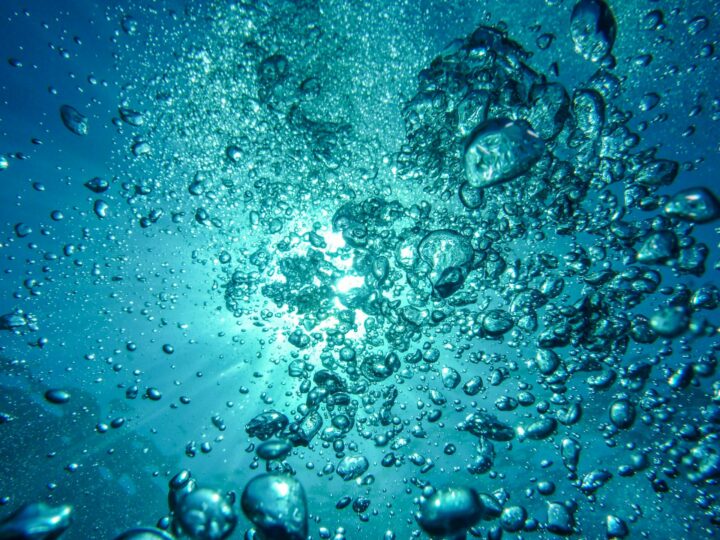The following contribution is from another author.
In an era where environmental concerns meet daily health necessities, the revolution of water filtration systems stands at the forefront of modern home improvement. These systems not only promise a supply of clean, fresh water, but also represent a pivotal shift towards sustainability and personal well-being for households. Read on to explore the world of water filters and why they’ve become so essential for contemporary homes.
The Importance of Filtration
Clean drinking water is a fundamental health requirement, not just about quenching thirst. With growing industrialization and environmental issues, even readily available tap water faces contamination threats – from microplastics to heavy metals and more. Filtration systems provide a vital protective barrier, ensuring the water consumed by families remains pure and safeguards them against potential health risks.
Filtration also preserves water’s natural taste and enhances its quality. By removing impurities, these systems significantly improve the flavor of drinking water, making staying hydrated more appealing and promoting healthier lifestyle choices. Installing a water filter brings health advantages and enjoyable consumption.
Exploring Filtap Solutions
Filtap solutions stand at the forefront of this transformative movement. With a comprehensive array of technologies – from simple charcoal-based filters to advanced reverse osmosis systems – Filtap offers tailored solutions targeting specific contamination concerns. From under-sink units to whole-house filtration, their technologies ensure every drop entering homes is meticulously purified.
Examining Filtap’s offerings shows their dedication to innovation; UV purification eliminates microorganisms, while advanced carbon filters tackle chemical pollutants with unprecedented efficiency. By integrating these technologies, Filtap guarantees cleaner water while ushering homes into a future where water safety and quality are paramount. One can see Filtap first-hand to understand their cutting-edge solutions.
Maintenance and Costs
Owning a filtration system requires some maintenance, but this doesn’t have to be burdensome. Many modern units are designed for easy cartridge replacement or cleaning intervals spaced out to minimize hassle. Staying on top of maintenance ensures optimal performance over time, translating into longer lifespan and sustained water quality.
Considering costs, the initial installation is a fraction of long-term savings compared to bottled water expenses or potential medical bills from contaminated tap water. While higher-end models may have steeper upfront costs, their efficient contaminant removal often justifies investments via reduced health risks and decreased maintenance demands over time.
Filtration versus Bottled Water
When contrasting home filtration with bottled water, several factors come into play – not just cost-efficiency but also environmental impact. While bottled water offers convenience, it generates vast amounts of plastic waste with often no better quality than filtered tap water, at a significantly higher cost per gallon.
Taking control through domestic filtration not only provides peace of mind about drinking water quality; it also reduces reliance on plastic bottles, contributing to global efforts combating pollution.
Maintenance and Costs
Maintenance is an unavoidable part of owning a filtration system. But it needn’t break the bank. Many modern units are designed for easy cartridge replacement or cleaning intervals spaced out enough to minimize hassle. Keeping atop maintenance ensures optimal performance over time—an effort that translates directly into prolonged filter lifespan and sustained water quality.
When considering costs, initial installation represents but a fraction of long-term savings compared against bottled water expenses or potential medical bills engendered by contaminated tap water consumption. While higher-end models may carry steeper upfront costs, their efficient contaminant removal capabilities often justify investments through mitigated health risks and decreased maintenance demands over time.
Filtration Versus Bottled Water
In contrasting home filtration with bottled water consumption, several factors come into play—not least among them cost-efficiency but also environmental impact considerations. While bottled water offers convenience, it generates vast amounts of plastic waste while often providing no better quality than filtered tap water at significantly higher cost per gallon.
Taking control through domestic filtration not only grants peace of mind regarding what you’re drinking; it plants you firmly on the side of sustainable practice by reducing reliance on plastic bottles—a small shift that contributes towards global efforts in combating pollution.
Filter Effects on Taste
The taste of drinking water can be affected by contaminants and minerals. Chlorine, for instance, has an unpleasant taste and smell. Similarly, heavy metals and pollutants can negatively alter the taste profile of tap water. Filtration systems directly tackle these issues by eliminating or reducing unwanted substances that affect flavor.
One notable improvement after installing a filter is crisper, cleaner-tasting water. This isn’t just about enjoyment – better taste also means better health. When water is more palatable, people likely drink more of it, improving hydration. Whether using basic activated carbon filtering or advanced reverse osmosis, reduced contaminants dramatically improve taste.
Environmental Impact of Filters
Adopting home water filters carries positive implications for the environment. By reducing bottled water dependency, households contribute significantly less plastic waste – a major pollution source threatening marine life. Moreover, high-quality filters are designed to last, meaning less replacement waste over time.
However, it’s important to responsibly dispose of used filters according to manufacturer recommendations or local recycling programs. Some companies offer product recycling or utilize eco-friendly materials. By choosing sustainable options and proper disposal methods, filtration systems further enhance environmental protection efforts.
Role of Filtration in Health
Clean water is critical for good health; however, common tap water contaminants can pose serious health risks. Even low lead exposure can affect children’s cognitive development and exacerbate adult health problems. Other contaminants like industrial chemicals or pesticides may cause long-term issues.
Modern filtration removes or reduces these drinking water dangers. This is especially critical in contamination-prone areas but beneficial universally given water purity unpredictability. Effective filtration safeguards against harmful pollutants and encourages healthy hydration habits – supporting overall wellness.
Home Installation Process
The process of installing a home water filtration system varies depending on the type chosen but generally involves selecting a suitable location (for example under the sink for point-of-use filters or at the point where water enters the house for whole-home systems), connecting it to your existing plumbing, and potentially adding dedicated faucets if required by the system design.
While some homeowners might be comfortable tackling installation as a DIY project—especially for simpler units—professional installation is recommended for more complex systems like reverse osmosis filters or whole-house models. Click here for professional installers that can ensure optimal functionality from day one without risking damage from incorrect setup or leaks that could occur from improper connections.
Water Filter Innovations
The field of water filtration is one constant innovation driven by both technological advancements and evolving consumer needs. Among most cutting-edge developments are smart filter systems equipped with sensors that monitor filter life and performance in real-time, providing alerts when it’s time for maintenance or replacement directly through an app on your smartphone.
Additionally, researchers are exploring materials like graphene-based membranes for their potential to revolutionize purification efficiency while minimizing energy consumption—the promise being notably faster filtration without sacrificing quality or losing essential minerals that conventional systems sometimes remove alongside contaminants.
Closing Thoughts
Home filters offer numerous benefits beyond clean drinking water – health and environmental investment while potentially saving money over bottled water. With various filtration technologies available, there’s never been a better time to bring filtered tap water into your life.
Considering factors like local contaminants, taste preferences, installation, and costs vs long-term benefits – plus staying updated on innovations – equips you to make an informed choice about the ideal solution to meet your home’s needs now and in the future.
















